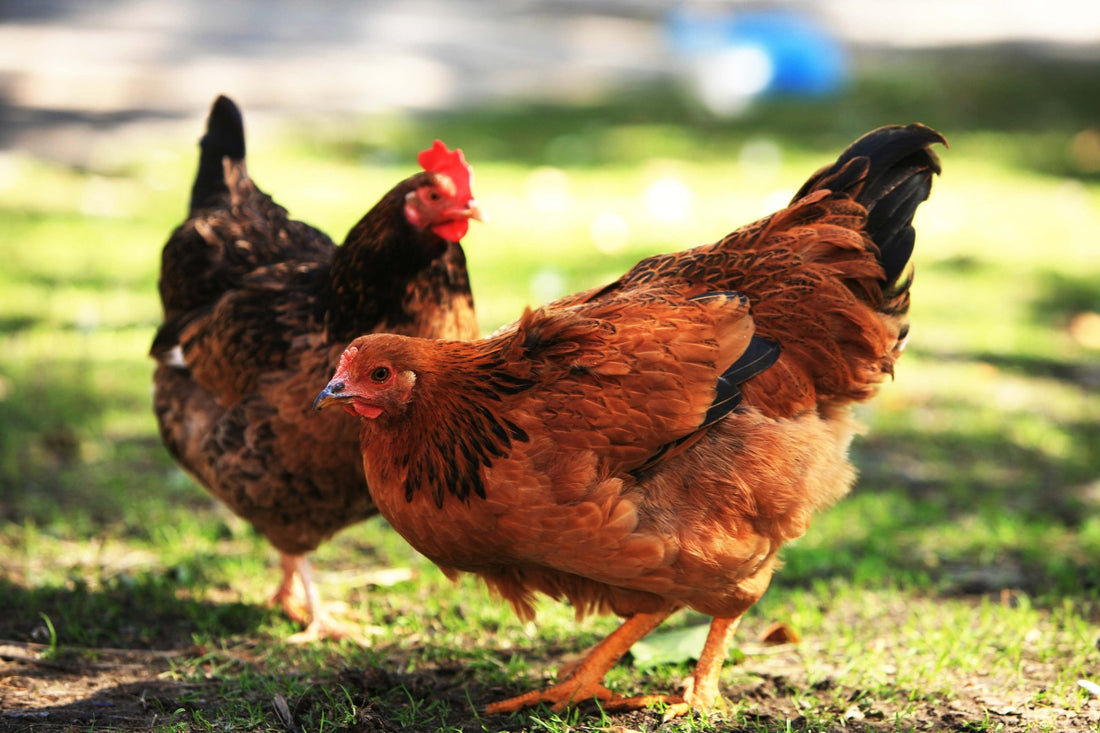Have you ever gazed into the eyes of your beloved backyard chickens and wondered just how much is going on behind those beady little orbs? Chickens have long been the subjects of unfair stereotypes, being labeled as "bird-brained" or "simple-minded." However, recent research has begun to reveal the fascinating and often surprising intelligence of these humble, feathered creatures. So, join me today as we explore the incredible smarts of our fine-feathered friends and debunk the myths surrounding their cognitive abilities. Let's cluck our way to a greater understanding of these captivating and clever cluckers!
Chicken Cognition: The Science Behind the Smarts
Problem Solving
Chickens have been shown to possess impressive problem-solving skills. They can learn to navigate complex mazes, understand cause and effect relationships, and even demonstrate foresight and planning in their actions. In one study, researchers found that chickens could learn to peck at specific buttons to release food or water, demonstrating their ability to connect their actions with specific outcomes.
Memory
Chickens have an extraordinary ability to remember and recognize individuals, both within their own species and among humans. They can differentiate between familiar and unfamiliar faces, remembering the appearance and behavior of other birds and people they have encountered. This ability to recognize and remember individuals helps chickens establish and maintain social hierarchies within their flocks.
Empathy and Emotion
Research has shown that chickens are capable of experiencing a wide range of emotions, including fear, stress, and even empathy. Mother hens have been observed displaying signs of distress when their chicks are in danger, and flockmates can respond to each other's emotional cues, demonstrating a level of emotional intelligence that was once thought to be unique to mammals.
Communication
Chickens possess a complex and sophisticated communication system, using over 30 different vocalizations to convey a variety of messages to their flockmates. These vocalizations can communicate information about food sources, threats, individual identities, and even emotions. Chickens also use body language and visual cues to communicate with one another, making them highly skilled communicators within their social groups.
Chicken Intelligence in Action
The Pecking Order
The social hierarchy, often referred to as the "pecking order," is a prime example of chicken intelligence in action. Chickens establish and maintain this hierarchy through a series of interactions and observations, using their memory and recognition skills to navigate the complex social dynamics of their flock. This system ensures that resources such as food, water, and nesting spots are allocated efficiently and helps minimize conflicts within the group.
Food-Searching Strategies
Chickens employ a variety of intelligent strategies when searching for food. They can learn the locations of reliable food sources and remember the best times to visit them, demonstrating their ability to plan and strategize. Chickens also exhibit a remarkable ability to adapt to new or changing situations, quickly learning to modify their food-searching behaviors in response to changes in their environment.
Predator Evasion
Chickens have developed a variety of clever tactics to evade predators and protect themselves from harm. They use their complex communication system to alert their flockmates to potential threats, and they can even employ deceptive tactics, such as feigning injury, to distract predators and allow their fellow birds to escape.
Chickens as Pets: Harnessing Their Intelligence
Training and Enrichment
With their impressive cognitive abilities, chickens can be trained to perform a variety of tasks and tricks, such as coming when called, perching on command, or even navigating obstacle courses. Positive reinforcement techniques, such as clicker training, can be highly effective in teaching your chickens new behaviors. Providing your flock with enrichment activities, such as puzzle feeders, hidden treats, or perches and ramps to explore, can also help stimulate their minds and keep them engaged.
Social Interaction
Chickens are social animals, and their intelligence is best displayed when they are allowed to interact with their flockmates and human caregivers. Spending time with your chickens, observing their behaviors, and engaging in gentle play can help strengthen your bond with your birds and provide them with valuable mental stimulation.
A Chicken-Safe Environment
Creating a safe and stimulating environment for your chickens is essential for their well-being and cognitive development. Ensure that your coop and run are secure from predators, provide ample space for your birds to explore, and offer a variety of perches, nesting boxes, and hiding spots to keep them mentally and physically engaged.
Chickens are truly fascinating creatures, possessing a depth of intelligence that is often overlooked and underestimated. These clever cluckers have demonstrated remarkable problem-solving skills, memory, empathy, and communication abilities, challenging our preconceived notions of what it means to be "bird-brained." By appreciating and nurturing the intelligence of our backyard chickens, we can foster a deeper connection with these captivating creatures and provide them with the rich, stimulating environment they need to thrive. So, let's give our feathered friends the respect and admiration they deserve, and celebrate the boundless potential of the humble chicken's intellect!

